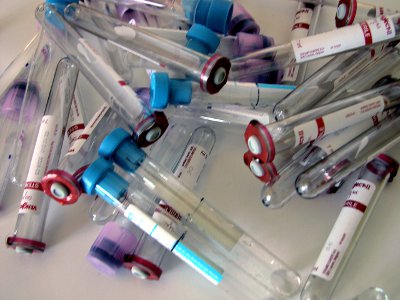The Facts about STIs, Testing and Moratoriums

By Diane Duke
CHATSWORTH, Calif. – On Friday, one of the testing facilities that serve the adult industry alerted Performer Availability Screening Services to a positive HIV test by an adult film performer. While we don’t yet know if the performer acquired the virus in his or her personal life or while working in adult film, we immediately called a moratorium and halted all production.
Unfortunately, since then I’ve seen a lot of misinformation in the media and some truly reprehensible behavior on social media; therefore, we at the Free Speech Coalition and PASS felt it was necessary to explain how the testing procedure and moratoriums work.
A moratorium is a preventative measure used to protect adult performers. Over the past year, we’ve called two other moratoriums when performers who wished to work tested positive for HIV. In each case, the virus was acquired off-set and the PASS testing system prevented the infection from entering the adult industry performer pool. Like a ringing car alarm, a moratorium is a sign of a working system, not a broken one. Adult performers — like everyone else — have personal lives. No industry trade group can control, nor should it attempt to control, people’s private lives. What we can do is make sure HIV is stopped at the gate by testing protocols.
Once a moratorium is called, all production stops so the genealogy of the virus can be traced. The performer who tested positive is interviewed. All sexual partners — on-screen or off-screen — who fall within the transmission window are contacted and tested. This allows doctors to trace the transmission history of the virus: how it was acquired, if any other performers were exposed, and if there is any further threat to the performer pool. What doctors don’t disclose is the identity of performers.
HIV is a serious issue, and it’s important that we deal in facts, not fear or rumor; therefore, we’ve prepared a FAQ to help people understand the process.
Are adult performers tested for HIV?
Yes. Any performer who wants to work in the adult industry must test clear of sexually transmitted infections, including HIV, within 14 days of their shoot date. Performers who work on a regular basis generally test every two weeks at PASS-certified testing clinics.
What is the PASS system?
The PASS system is a descendant of AIM (Adult Industry Medical), a healthcare foundation created by a performer with the support of FSC to help protect against STIs. Under the PASS system, producers and directors check to confirm that any performer they wish to employ has been cleared to perform in the PASS database within the past 14 days. If a performer does not have a recent test, or the most recent test results show any irregularity, he or she will not be cleared to perform.
What happens if a performer tests positive for HIV?
If an active performer tests positive for HIV, a moratorium is called immediately and the industry immediately halts all production.
How are moratoriums called?
The doctor at the PASS facility that conducted the positive test checks to see whether the performer has worked on any adult films during the two weeks since his or her last negative test. If he or she has, the doctor alerts the Free Speech Coalition, and the FSC calls an industry-wide moratorium. Production is halted while every potentially affected performer is retested to make sure no performers have been or will be exposed to the virus.
What happens during a moratorium?
During a moratorium, film production stops while doctors work to determine if anyone else was exposed and to establish a genealogy of the virus.
All performers who have worked with or had sexual contact with the positive performer prior to the performer’s last negative HIV test are tested and retested. In some cases, third-generation partners [those who had contact with someone who performed with the infected individual] may be tested as well. The goal is to figure out, as quickly as possible, whether anyone else was exposed to the virus and to stop any potential on-set transmissions.
The HIV-positive performer is interviewed to determine the timeline and first-generation partners. If the performer had sexual contact with other performers off-set, the PASS doctors and FSC work together to make sure those people are informed and tested, as well as any other individuals with whom the performer had sexual contact.
How is the decision made to lift the moratorium?
A moratorium is lifted only after it is clear there is no threat of transmission. Transmission threat is determined only after a genealogy of the virus is established and all sexual partners have been tested. Then, and only then, do the FSC and PASS discuss whether it is safe for performers to resume shooting.
If the FSC and PASS determine it is safe to lift the moratorium, the organizations set a date on which production may resume. All performers must retest in order to be cleared for work. The retests must happen no sooner than 14 days after the date the positive performer received his or her positive results or the date of the positive performer’s last sexual encounter with another performer.
The HIV RNA Aptima test used by PASS has a seven- to 10-day window, meaning it can identify HIV within 7-10 days of transmission. However, we wait at least 14 days after any possible exposure before lifting the moratorium for added accuracy, and to make sure nothing was missed.
Why not wait longer?
In some cases, we do. If there are any irregularities or if we suspect there may be any extant threat to the performer pool, we maintain the moratorium. We lift the moratorium only when there is no medical reason for it to be extended.
FSC and PASS try to balance performer safety with performers’ desire to work. While most studios stockpile films and can weather a longer moratorium, individual performers often have to contend with a direct loss of income once shooting stops.
How accurate are the tests?
The HIV RNA Aptima test is the most accurate test available. Because of its specificity and sensitivity, a false positive (a performer tests positive for HIV but does not actually harbor the virus) occurs from time to time. We have never encountered a false negative and understand the incidents of false negatives to be exceedingly rare.
What other tests does PASS require?
PASS has an extremely rigorous testing protocol designed to reduce the risk of STIs.
Performers test every 14 days for:
- HIV (PCR RNA Aptima).
- Syphilis (RPR and Trep-Sure test).
- Hepatitis B and C.
- Chlamydia (ultra-sensitive DNA amplification).
- Gonorrhea (ultra-sensitive DNA amplification).
- Trichomoniasis.
Why not just require condoms?
Unfortunately, condoms aren’t perfect. They break. Sex scenes can take several hours to film, and during that time condoms may cause abrasions known as “condom rash.” Paradoxically, condom rash may make infection more likely if a condom does break. For this and a host of other reasons, performers generally prefer to rely on the testing system instead of condoms.
More information about condoms on adult film sets is available here.

Diane Duke is the chief executive officer for adult industry trade association Free Speech Coalition. As part of its dedication to serving the political, social, professional and health needs of the adult entertainment industry, FSC operates PASS, a not-for-profit clearinghouse providing health status information and referral services to studios and adult performers. Participation in the PASS database is voluntary.










